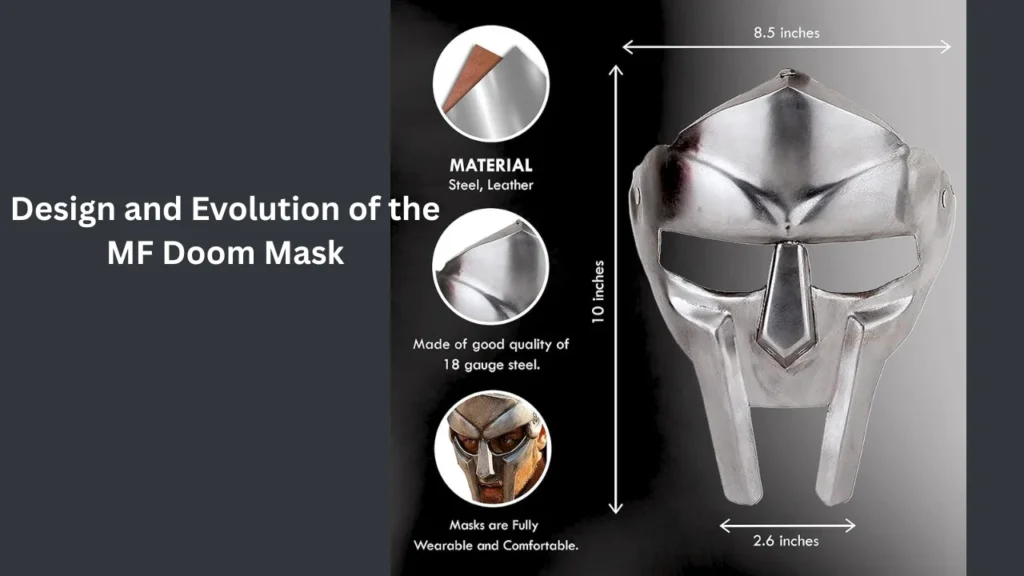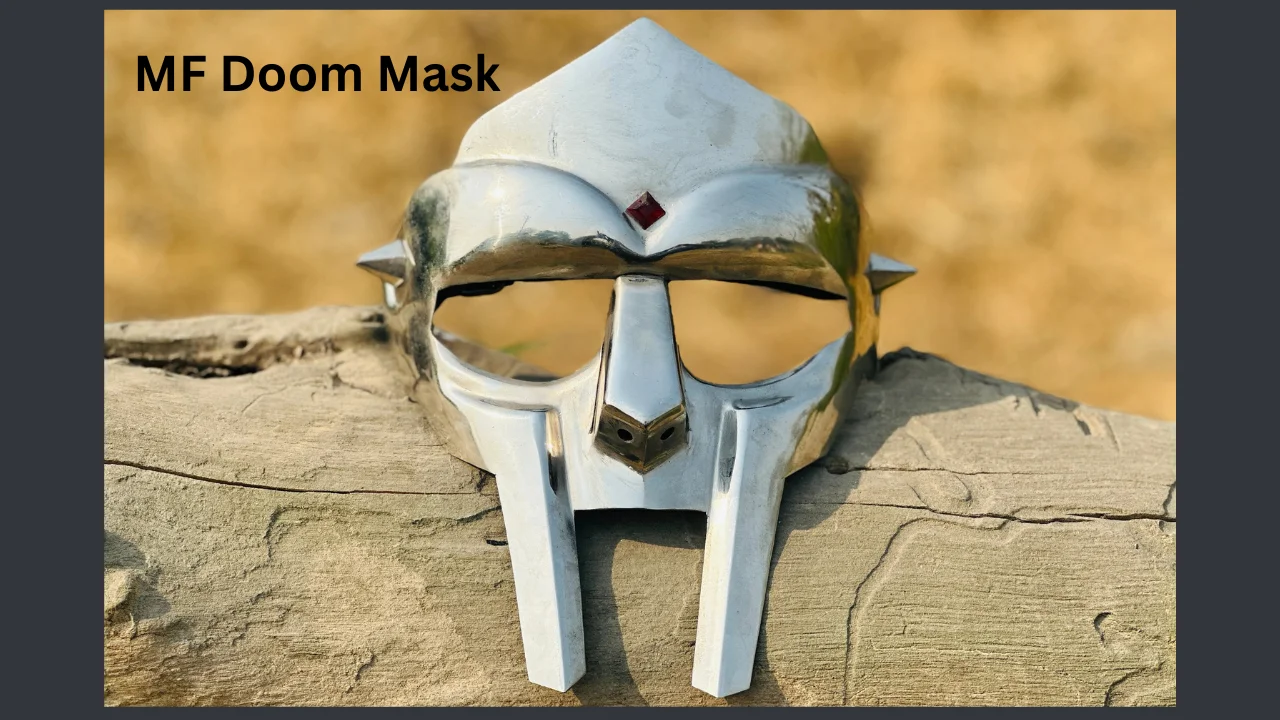When it comes to legendary figures in underground hip-hop, MF DOOM stands out not just for his lyrical genius, but also for his mysterious identity. One of the most recognizable features of his persona is the MF DOOM mask. It’s not just a costume or a gimmick—it’s a symbol of artistic expression, anonymity, and rebellion against the norms of celebrity culture. This article dives deep into the origins, meaning, design, and cultural significance of the mask worn by the iconic rapper.
Who Was MF DOOM?
Born Daniel Dumile, MF DOOM was a British-American rapper and producer. He gained fame in the late 1990s and early 2000s for his complex rhymes, intricate storytelling, and unique flow. But what made him visually unforgettable was the metal mask he wore throughout his career. It became a symbol of his artistry and was inspired by comic book villains, particularly Doctor Doom from Marvel Comics.
MF DOOM believed in letting the music speak. He didn’t care for fame or attention outside his work. His mask helped keep his face hidden and the spotlight on his lyrics. For him, the mask was more than a disguise—it was a message.
ALSO READ: GVF90433S Gama Hot Water Heater Specs Features And Pricing
History of the MF DOOM Mask
The journey of the MF DOOM mask began after the death of Dumile’s brother and group partner, DJ Subroc. This tragedy pushed him away from the public eye. When Dumile returned as MF DOOM, he decided to shield his identity completely.
His early performances involved stocking masks or scarves, but as his character developed, so did his look. He finally settled on the metal mask, modeled after the villain Doctor Doom, representing strength, vengeance, and mystery. Fans loved it not just for the look, but for what it represented—a rejection of fame and a return to real artistry.
What the Mask Represents
At its core, the MF DOOM mask symbolizes anonymity in a world obsessed with celebrity. In interviews, DOOM often said the mask was about putting character before personality. Unlike other rappers who leaned heavily on fame, jewelry, or extravagant lifestyles, he chose mystery and depth.
It allowed him to create multiple personas, such as Viktor Vaughn and King Geedorah. They weren’t just stage names—they were full characters with their own narratives. The mask gave him the freedom to become whoever he wanted, whenever he wanted.
Design and Evolution of the MF Doom Mask

The iconic version of the MF DOOM mask is made of brushed metal, with a sleek design covering the entire face except for the eyes and mouth. It is both intimidating and stylish. The first masks were custom-made and uncomfortable to wear, but over time, they were modified for better fit and breathability.
ALSO READ: EVD Device LTAC Facility Innovations In Neurological Care
Below is a table that shows the evolution of the MF DOOM mask through the years:
| Year | Mask Version | Material Used | Notable Appearance |
|---|---|---|---|
| 1999 | Homemade Mask | Cloth/Plastic | First live shows as MF DOOM |
| 2001 | Silver Mask | Lightweight Metal | Album Operation: Doomsday promo |
| 2004 | Refined Metal Mask | Brushed Steel | Album MM..FOOD, iconic public image |
| 2010 | Touring Mask | Flexible Alloy | Used for comfort during live performances |
Each version improved the look and feel, while maintaining the same villainous aesthetic.
MF DOOM Mask Pricing
The MF DOOM mask comes in a wide range of prices depending on its material, craftsmanship, and purpose. Basic plastic versions are available for as low as $20, making them ideal for casual fans or costume use. Mid-range replicas, usually made from resin or ABS plastic, offer more detail and durability at around $50 to $80. For collectors and serious fans, high-end metal replicas can cost anywhere from $100 to $250, offering a look and feel close to the original. Custom-made masks and limited-edition pieces can exceed $500, especially if they include artist signatures or handcrafted designs.
| Mask Type | Material | Features | Estimated Price (USD) |
|---|---|---|---|
| Basic Replica Mask | Plastic | Lightweight, good for costumes | $20 – $40 |
| Mid-Range Replica | ABS or Resin | Painted details, durable | $50 – $80 |
| High-End Collectible | Brushed Metal | Heavyweight, accurate replica | $100 – $250 |
| Custom Made Replica | Stainless Steel | Handcrafted, wearable with padding | $300 – $500+ |
| Limited Edition Art Piece | Mixed Media | Signed by artists or creators | $500 – $1,000+ |
Public Reaction to the Mask
People reacted strongly to the MF DOOM mask. Fans saw it as a powerful statement against the fame-hungry music industry. It became a symbol for those who value talent over looks, and art over fame.
His mask created mystery and heightened curiosity. Many wondered who the man behind the metal truly was. This intrigue worked in his favor, helping build a myth around him that made his music even more compelling.
Influence on Pop Culture
The MF DOOM mask has become a part of hip-hop and pop culture history. You’ll see artists and fans wearing replicas during concerts or music festivals. It’s more than just a piece of metal—it’s a badge of honor in the underground scene.
Even big names in rap and fashion have acknowledged the mask’s impact. Tyler, The Creator, Earl Sweatshirt, and Joey Bada$$ have all shown love for DOOM and his mysterious persona. In comic book art, video games, and streetwear, echoes of his mask live on.
Where is the MF DOOM Mask Now?
Since his death in October 2020, fans have wondered where the original MF DOOM mask is kept. Some say his family owns it, while others believe it’s locked away with his other personal items. Whatever the truth is, the mask’s legacy remains alive in the music, the visuals, and the culture he helped shape.
MF DOOM Mask and Live Performances
There’s a lot of controversy around DOOM’s live shows. Some performances featured imposters wearing the MF DOOM mask, which led to mixed reactions. DOOM claimed these “DOOMposters” were part of the act—adding another layer to the idea of identity, illusion, and showmanship.
Though some fans were frustrated, others admired the conceptual genius behind it. It was DOOM’s way of questioning what’s real and what’s staged in the entertainment industry.
Buying a Replica Mask
Many fans want to own a replica of the MF DOOM mask. Online marketplaces sell versions ranging from affordable plastic versions to high-quality metal replicas. Some collectors go for custom-made designs to match the mask seen in live shows and album covers.
If you’re looking for one, be sure to check the material and reviews. While cheap ones are great for display, the real appeal is in those that closely resemble the original.
Cultural Meaning Beyond Hip-Hop
The MF DOOM mask is now a cultural artifact. It’s used in graffiti, tattoos, animations, and murals across the globe. For many, it represents more than MF DOOM—it’s a symbol of rebellion, creative freedom, and staying true to yourself.
Artists from all genres have drawn inspiration from his masked persona. In an era of oversharing and online fame, his approach to privacy and identity was refreshing and powerful.
Frequently Asked Questions
Why did MF DOOM wear a mask?
He wore it to protect his identity and let the focus remain on his music instead of his appearance.
What is the MF DOOM mask made of?
The original versions were made of brushed metal, though earlier versions were plastic or cloth.
Was the mask inspired by a comic book character?
Yes, the design is inspired by Doctor Doom, a Marvel supervillain known for his intelligence and metal mask.
Can you buy the MF DOOM mask?
Yes, many replica versions are sold online, from plastic props to high-quality metal recreations.
Did DOOM ever perform without the mask?
Rarely. He almost always wore it in public, keeping his identity hidden for most of his career.
Conclusion
The MF DOOM mask is not just an accessory—it’s an entire philosophy. It tells a story about staying true to your art, rejecting superficial fame, and embracing mystery. They used the mask not only to create a character but to reshape how we think about identity in music.
It became a voice for those who feel unseen and a symbol for fans who care more about what’s said than how someone looks. In a world of filters, selfies, and fame-hunting, the metal face remains a powerful reminder of what matters most—the music.

